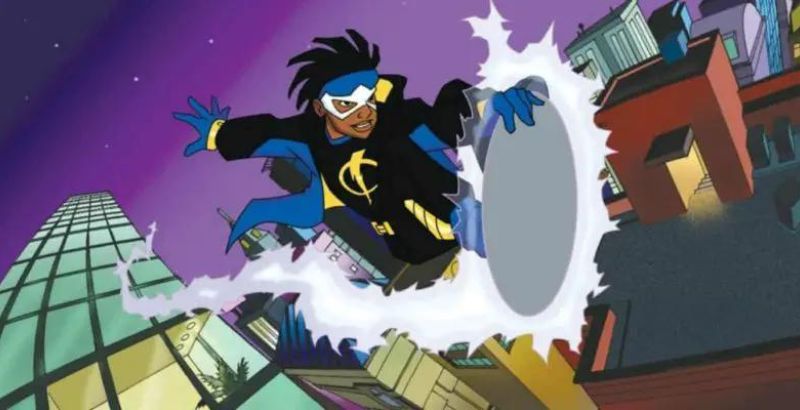
Growing up, I watched a lot of cartoons; most of them starred superheroes, like Batman: The Animated Series and the 90’s X-Men and Spider-Man animated series. However, starting in 2000 there was one hero who stood out to me: Static Shock, better known to his family and friends as Virgil Hawkins.
Created by the late, great Dwayne McDuffie, Derek T. Dingle, Michael Davis, and Denys Cowan, Static first made his debut in the Milestone Universe, a comic book universe majorly populated by heroes who were minorities. This also reflected their creators who happened to be minorities themselves; namely, black men. Static was born when Virgil Hawkins, tired of being the target of a racist bully, borrowed a gun from his friend with the intent to shoot his tormentor. Common sense prevailed, but the police entered the scene and deployed experimental tear gas. This gas infused Virgil, and many others, with superhuman powers; in Static Shock’s case, he was able to manipulate electromagnetic energy.
I was drawn to Virgil because I saw so much of myself in him, literally. Around the time I was twelve or thirteen, my mom twisted my hair into dreadlocks. I didn’t really like my locks, primarily because other kids would constantly yank at my hair and ask if it was real, or tease me about being Jamaican. It wasn’t until I turned on the TV and saw Static rocking dreads that I grew proud of my hairstyle. An added bonus was having friends compare me to him due to the hairstyle.

Another reason I related to Virgil far more than any other hero was that he was a geek, especially in the comics. He loved playing video games with his friends. He collected comics. He made references to Star Trek and The Matrix. He even collected Pokemon cards, and surprising no one, he felt a kinship with Pikachu. This was very important to me for so many reasons.
In middle school, I had always felt alone. Kids made fun of me for my hair, my lack of coordination, and the fact that I was in the band and actually liked to read. I had trouble making friends, as I was painfully shy and had trouble expressing myself. It wasn’t until I got into high school and started to go to speech therapy that I broke out of my shell a little. And that’s when I discovered Static Shock.
Seeing a kid who not only looked like me but also shared my same interests was a balm for the soul. Suddenly I felt like less of an outcast; I could point to Static Shock and say “That’s me. That could be me.” For a nerdy black kid growing up in Texas, that was a dream come true. McDuffie said that he wanted Static Shock to be a more contemporary version of Spider-Man, and in my book, he more than succeeded.

The best thing about Static Shock, at least to me, was his origin story. After he got his superpowers, the first thing he decided to do was fight crime. This was uncharted territory for me; most heroes I know suffered a loss. An act of selfishness cost Peter Parker his uncle and taught him the value of responsibility. An act of tragedy forever scarred Bruce Wayne and set him on a lifelong quest for justice. Clark Kent is the last survivor of a dead world. But nobody needed to die for Virgil Hawkins to become a hero as Static Shock and I think that’s beautiful.
Static Shock’s influence wasn’t just contained to his cartoon and comics; one of his co-creators also served as a massive inspiration. In addition to creating Static Shock and the other inhabitants of the Milestone Universe, McDuffie would write and serve as the story editor for several shows I would enjoy, including Justice League Unlimited and Ben 10: Alien Force. Learning that an African-American man was responsible for so many of the stories and characters I loved was a turning point in my life; it’s because of McDuffie’s work that I decided to become a writer.
Static Shock is the first character I could truly see myself in, and who has influenced my work and the way I view superheroes in so many ways. He continues to thrive in animation, particularly Young Justice: Outsiders. I hope that others will discover this character and feel a similar shock to their system.






